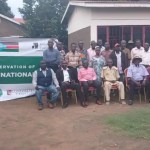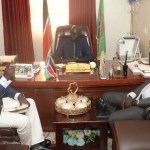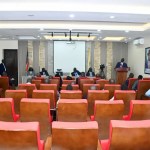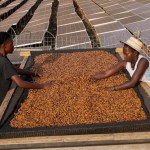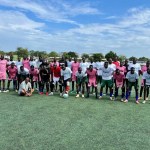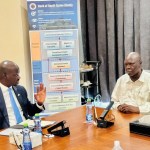(JUBA) – A group of South Sudanese diplomats has completed a specialised three day first aid training programme organised by the South Sudan Red Cross (SSRC) in Juba, aimed at equipping them with life saving emergency response skills.
The training which concluded on 18 July 2025 covered vital first aid techniques such as cardiopulmonary resuscitation (CPR), wound care and how to respond effectively in medical emergencies at home, in the workplace, or while on official duty.
Officials from the Ministry of Foreign Affairs and International Cooperation said the training is part of a broader strategy to improve diplomatic preparedness during emergencies and crises, both inside and outside the country.
Speaking at the closing ceremony, Ambassador Ajling Adiang, Director General of the Institute for Diplomatic Studies, praised the Red Cross for its commitment to humanitarian training.
“We highly appreciate the South Sudan Red Cross for this invaluable training. First aid is a critical skill that can save lives and diplomats should possess such skills,” he said.
The President of the South Sudan Red Cross, Mr. Joseph Dour, congratulated the participating diplomats and highlighted the importance of strengthening partnerships between government institutions and humanitarian organisations. He encouraged the diplomats to apply and share their newly acquired skills within their offices and communities.
“This training strengthens the partnership between the SSRC and the government. We encourage all diplomats to share this knowledge within their communities,” Dour stated.
SSRC Secretary General John Lobor also praised the diplomats’ dedication and willingness to engage in lifesaving practices. “Knowledge of first aid is crucial in saving lives, and we urge you to apply these skills wisely,” he said.
One of the trainees described the experience as empowering and practical.
“This programme has given us the confidence to act quickly and correctly during emergencies,” the participant said.
The SSRC confirmed plans to expand similar training to other sectors, including public institutions and civil society organisations, in order to improve the country’s overall preparedness and resilience.










